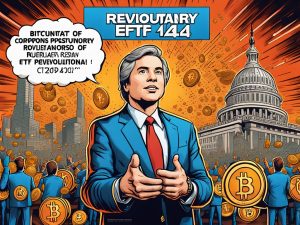Climate Change’s Financial Impact on Households and the U.S. Economy
Climate change poses significant financial risks to households and the U.S. economy, extending beyond its effects on ecosystems and biodiversity. Extreme weather events are largely responsible for these costs. The Fifth National Climate Assessment, released by the White House, warns that heat waves, heavy rains, droughts, hurricanes, floods, and wildfires are becoming more frequent and severe.
According to Andrew Rumbach from the Urban Institute, these extreme events carry various direct and indirect costs for families across the country. The economic toll is expected to rise as climate change worsens. Each incremental increase in climate change will incrementally raise economic costs.
The Unpredictable Effects of Climate Change
Climate change’s impacts can be strange and unpredictable. Displacement due to extreme weather events is a growing concern. Data from the U.S. Census Bureau’s Household Pulse Survey reveals that over 3 million U.S. adults were displaced from their homes in the past year alone.
In addition to property damage, evacuations lead to transportation costs, hotel expenses, and time away from work, resulting in disrupted pay and workplace benefits. Furthermore, climate change contributes to workplace injuries, increased emergency room costs, declining crop yields leading to out-migration, higher food prices, and increased insurance rates.
Preparing for Climate Change
While governments and corporations have been adapting to climate change for years, individuals can also take steps to prepare for its worsening effects. Homeowners and renters should review their insurance policies to ensure they have adequate coverage for flooding.
Potential homebuyers can consult tools like Redfin’s climate risk assessments to choose properties in areas with reduced climate risk. Additionally, investors can make environmentally conscious choices by supporting green industries and companies, such as utility companies that rely on renewable energy sources or those involved in the electric vehicle revolution.
Hot Take: The Urgent Need for Individual Action
Climate change is not just a problem for specific regions; it affects everyone. As extreme weather events become more frequent and severe, households and the economy will face increasing financial costs. It is essential for individuals to take action to prepare for the impacts of climate change, such as reviewing insurance policies and making environmentally conscious investment choices. By understanding the risks and taking proactive measures, individuals can mitigate the financial consequences of climate change and contribute to a more sustainable future.





 By
By
 By
By
 By
By
 By
By
 By
By
 By
By